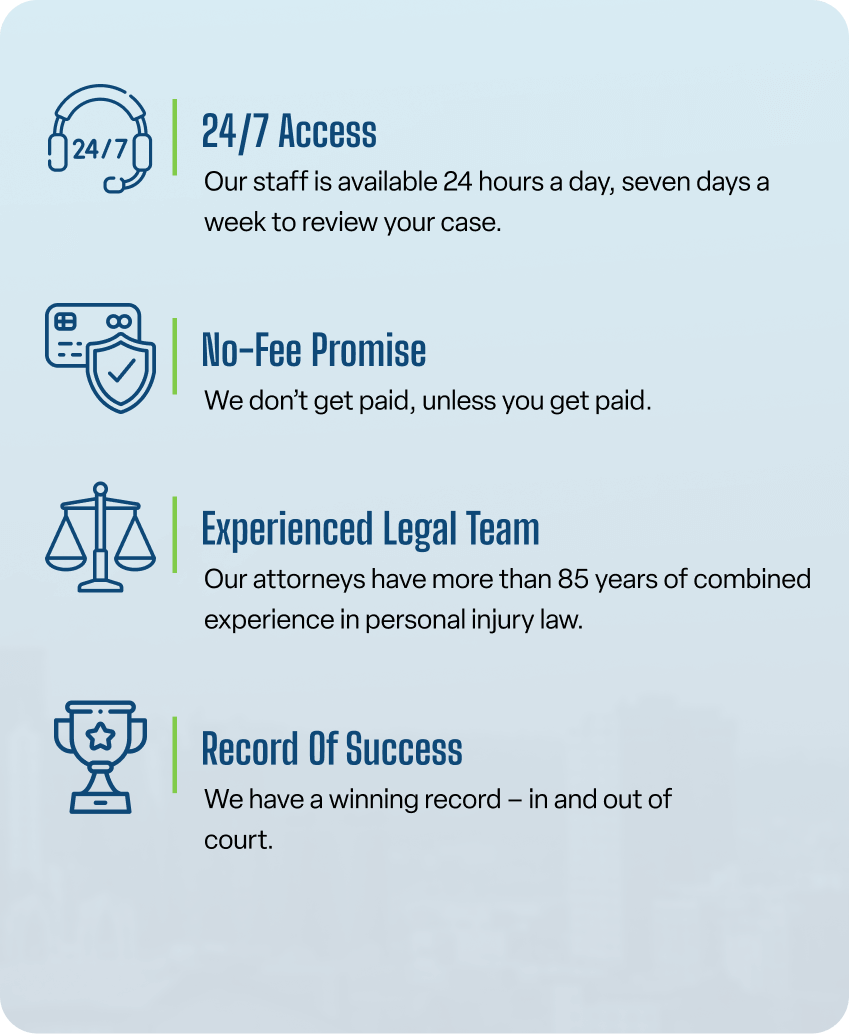Available 24/7
(800) 708-6000
Blog: News

Contact Us Today
Get a free case review
Call: (800) 708-6000 for a free and confidential consultation with an experienced attorney at the Phillips Law Firm.
For e-mail inquiry, please fill out and submit the form below.
